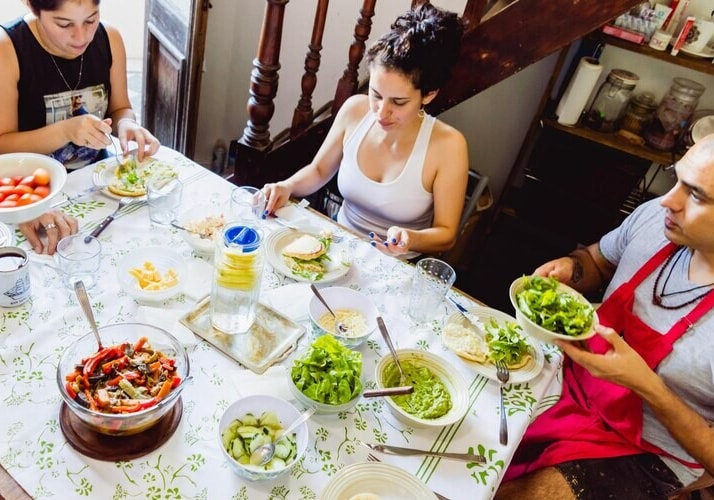Ιf you google the words “Greece” and “food,” it’s possible you’ll stumble on a recent article about the island of Lesvos and its relatively unknown local cuisine, which has elements taken from local traditions and Minor Asia. Or you might read somewhere that on the island of Naxos the locals produce some of the most interesting dishes from a very special micro-cuisine that we could call “Cycladic fusion.”
Or you may find out that Ikaria is known as the island of longevity, home of the now world-famous Blue Zones diet, and that this is believed to be the direct result of the eating habits of its inhabitants.
The truth is, that for Greeks, food has always been a big thing. City dwellers depend on rural producers. In the past, relatives who lived in the provinces would send their families in Athens or other cities part of whatever they produced: fresh eggs, olive oil, incomparably sweet tomatoes, crunchy little cucumbers, wild greens picked from their yard, as well as herbs gathered from hills and mountains.
The Greek villages not only were about the wealth they hold regarding the fresh food and produce, but also the experiences of daily life which sets the tone to establishing healthy habits and a healthy lifestyle that evolve from slow living.
Although this still happens on a smaller basis, this job of sending food to the mainland has largely fallen to a number of notable producers and distributors who spread this valuable production of the land across Greece and abroad. The country has a renewable treasure in its agricultural products, and you add to this the riches of the sea, and what emerges is a wealth of raw materials.
Greek cuisine isn’t predominantly a matter of technique. It is what it is because of the unique raw ingredients that go into it. They give the final product its tastiness.
But there’s another component that’s common to many Greek dishes – it’s the idea that food is to be shared. Cooking for others is an act of offering, of giving, of philoxenia (hospitality). The fact is, Greeks like to share their food but also to make an experience of it. As we have evolved and understood more about these eating habits, we see that it is more of a way of life rather than just about consuming food for the sake of consuming.
The Greek villagers use foods as a means to pleasure and enjoyment. Eating and drinking in the company of others, savoring meals slowly, and sitting down at a meal are all common things that come from the respecting and enjoying the food and having a lifestyle that slows life down is a part of the culture that is ingrained in each person of the village. The food becomes a gateway to a healthy life and happiness that can only be observed in the Greek villages. This is not only why scientists and researches alike have studied Greek food and the habits of villagers, but why the food and the lifestyle surrounding it has become so special for people all around the world to adopt and practices in their own life.
Want to Learn More?
If you enjoyed this article, go and check out my book: SLOW Life Diet – Greek Village Living: The Pathway to a Healthier Lifestyle, Healthy Habits, and a Happier You.
It provides a detailed explanation of this slow living lifestyle and provides a guide to help you on your journey in adopting the habits and lifestyle into your own life.
The knowledge of the Ancient Greeks had been passed down from generation to generation until their eating rituals and habits became part of the societal norm in Greece. These can be seen more so in the Greek villages as these villages have many similarities as how Ancient Greeks city-states were formed and how the people lived. They lived off the land and ate what the land provided. As a result, their nutrition was very healthy. As time progressed, the nutritional habits merged with the way of life which slowed down and started to focus on self and societal care. And finally, now, through this book about Greek village living, the secrets of this knowledge on nutritional and lifestyle habits that have been passed down and now practiced everyday are revealed.


No responses yet